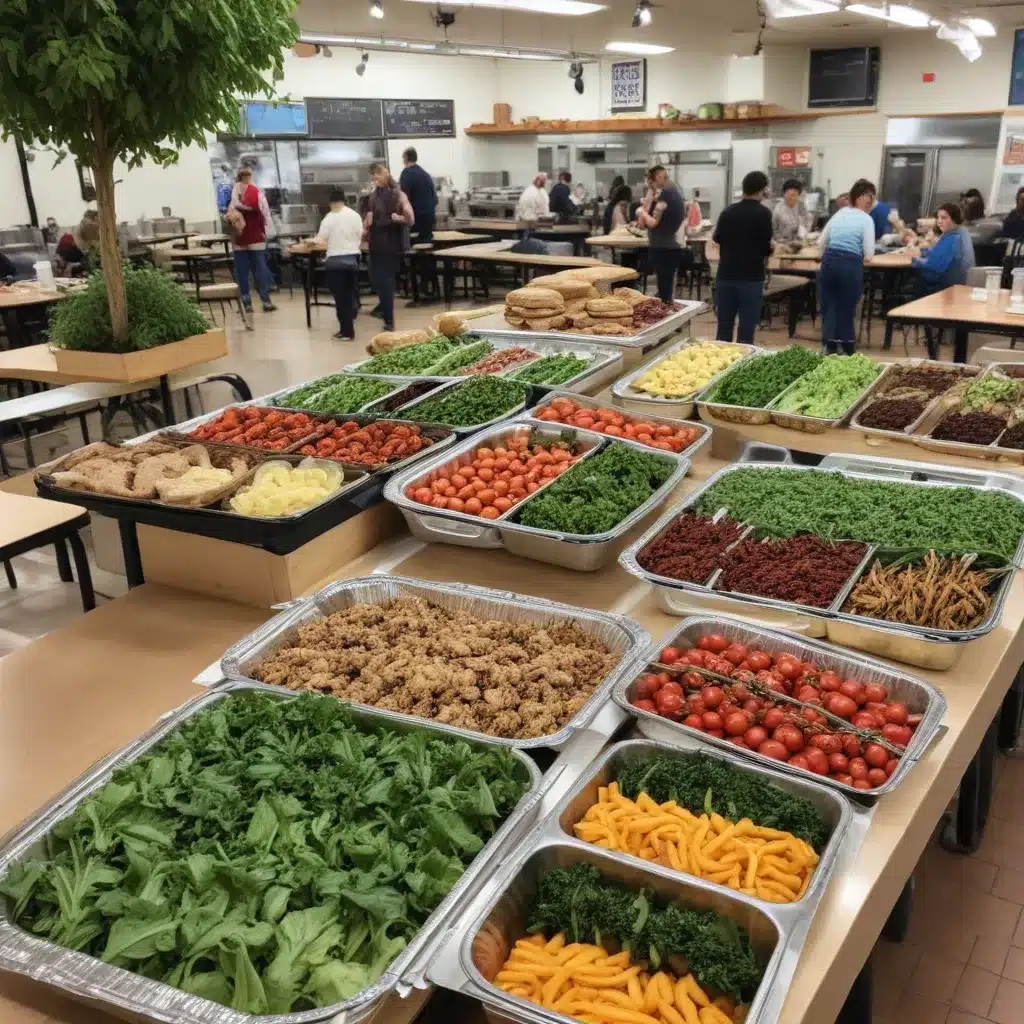
The Importance of Sustainable Food Choices
Our planet provides us with the nourishment we need to thrive, but the current state of our global food system is taking a significant toll on the environment. From the greenhouse gas emissions of industrial agriculture to the devastating impact of food waste, our daily food choices play a crucial role in determining the health of our planet.
As the Stanley Park High School community, we have both the opportunity and the responsibility to lead by example when it comes to sustainable food practices. By making conscientious choices about the food we serve in our cafeteria, we can not only improve the wellbeing of our students and staff, but also contribute to a more environmentally-friendly future.
Exploring Local and Organic Food Sourcing
One of the most impactful ways we can enhance the sustainability of our cafeteria is by prioritizing local and organic food sourcing. Buying produce and other ingredients from nearby farms and producers not only supports our local economy, but also significantly reduces the environmental footprint of our food.
According to Sustainable Earth, over the past 50 years, the average distance food travels from farm to plate has increased from 100 miles to a staggering 1,500 miles. This dramatic rise in “food miles” has led to a sharp increase in fuel consumption and greenhouse gas emissions. By sourcing our cafeteria ingredients from local suppliers within a 100-mile radius, we can drastically cut down on these environmental impacts.
Moreover, organic farming practices avoid the use of synthetic pesticides and fertilizers, which can pollute our air, soil, and waterways. As noted by one of the sources, 90% of people in the United States have detectable concentrations of pesticides in their bodies due to conventional agricultural methods. Choosing organic not only supports a healthier environment, but also provides our students with safer, more nutritious food.
To get started, reach out to your city’s environmental services department for recommendations on local organic producers. Visit your community’s farmers market and connect with growers in the area. Networking with other local restaurants that have successfully transitioned to sustainable sourcing can also provide valuable insights.
Embracing a Plant-Based Shift
In addition to sourcing food locally and organically, transitioning our cafeteria menu towards more plant-based options can have a tremendous positive impact on the environment. Research shows that eating more plant-based foods is one of the easiest and most effective ways to reduce greenhouse gas emissions, conserve land and water, and slow the rate of global warming.
The plant-based food movement is rapidly gaining traction, with a recent survey finding that 39% of Americans want to incorporate more plant-based items into their diets. By offering a diverse selection of delicious, wholesome plant-based meals in our cafeteria, we can not only cater to this growing demand, but also inspire our students and families to make more sustainable food choices.
When transitioning to a plant-based menu, it’s important to prioritize whole, minimally processed ingredients. As one of the sources noted, highly processed plant-based products, such as meat alternatives, are not necessarily the most sustainable option. Instead, focus on featuring a diverse array of fresh fruits, vegetables, whole grains, legumes, nuts, and seeds.
Take inspiration from innovative plant-based restaurants like Vedge in Philadelphia, which is redefining fine-dining vegan cuisine. Experiment with creative plant-based recipes that showcase the natural flavors and textures of seasonal produce. Engage your students in the process by soliciting feedback and involving them in menu planning.
Building a Culture of Sustainability
Cultivating a sustainable cafeteria is not just about the food we serve, but also the way we approach food service as a whole. Reducing waste, increasing efficiency, and fostering a culture of environmental stewardship are all crucial components of a truly sustainable food system.
As one of the sources mentioned, the restaurant industry is a significant contributor to the global food waste crisis, with many kitchens routinely discarding perfectly edible food. By implementing robust composting and food donation programs, we can dramatically reduce the amount of waste generated in our cafeteria.
Additionally, investing in energy-efficient kitchen equipment, such as water-saving dishwashers and induction cooktops, can significantly lower our environmental impact. Exploring the feasibility of on-site renewable energy sources, like solar panels or small wind turbines, can also help our cafeteria become more self-sufficient and grid-independent.
Beyond the operational aspects, engaging our students, staff, and broader community in the sustainability journey is essential. Organize educational workshops, culinary demonstrations, and community events that celebrate the benefits of local, organic, and plant-based eating. Empower students to take an active role in shaping the cafeteria’s sustainability initiatives, fostering a sense of ownership and investment in the process.
Conclusion: Cultivating a Sustainable Future, One Meal at a Time
As we embark on this journey towards a more sustainable cafeteria, it’s important to remember that small, incremental changes can have a significant collective impact. By prioritizing local, organic, and plant-based food sourcing, reducing waste, and fostering a culture of environmental stewardship, we can not only improve the health and wellbeing of our Stanley Park High School community, but also contribute to a more sustainable future for our planet.
Through our actions, we have the power to inspire others and demonstrate the profound difference that conscious food choices can make. Let’s embrace this opportunity to lead by example and cultivate a cafeteria that nourishes both our students and the Earth they will inherit.

